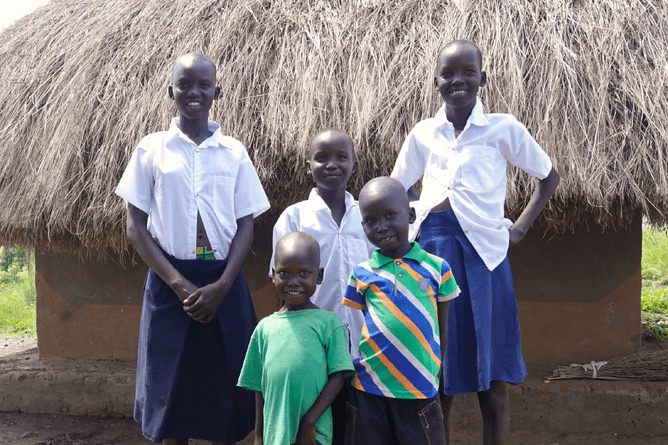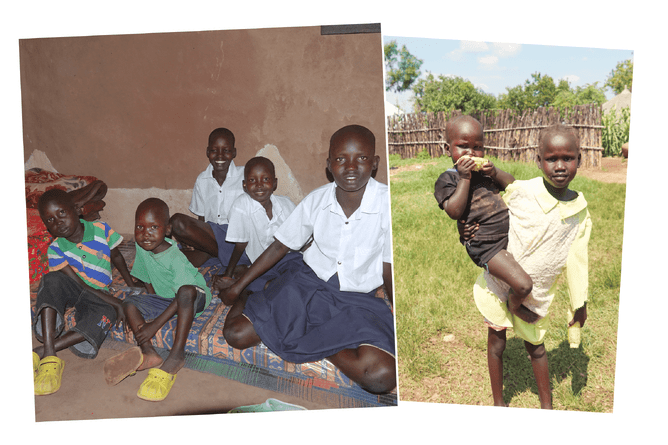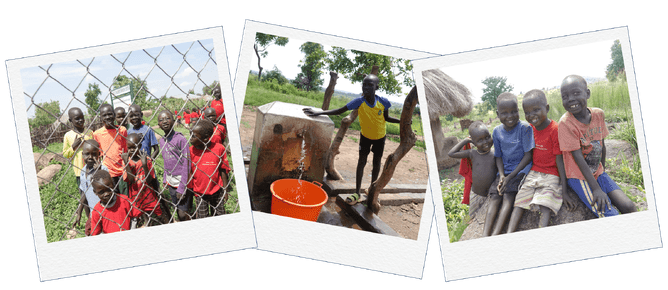MAF’s partner Khayamandi Foundation rescue a hungry family led by 16-year-old Nyabuom Puok, who without a parent present is responsible to care and provide for her four siblings.
At fifteen, Nyabuom Puok took on the responsibility to care for her four younger siblings single-handedly. It was not out of her own free will that Nyabuom assumed this responsibility.
Her mother, who lived with them at Rhino Refugee Camp in northern Uganda, returned to South Sudan with a promise that she would return soon. A year later, there’s no trace of her.
Community members brought the plight of these children to the attention of the Khayamandi Foundation.
MAF flies the Khayamandi Foundation to Arua, from where they drive 1.5 hours to the camp where they operate a kindergarten that prepares over 400 children for their primary education.
“I would lose four days if I travelled to this place by road,” said Chris Willis, board member for Khayamandi Foundation.
“With a MAF plane, I can fly into Entebbe airport and be here on the same day.”
Chris, who used to live in Arua, relocated to Nairobi, Kenya, where he could access better medical facilities for his twins, who had breathing challenges. MAF flights help him to do work on his day of travel, too.
Nyabuom’s little brothers are visibly malnourished. Her worst nightmare is how to save her siblings from hunger.
“I would perhaps not mind the responsibility of keeping my siblings, but when there’s no food, it becomes very difficult,” she said. “The United Nations High Commissioner for Refugees (UNHCR) doesn’t provide any more support at all. Even the SIM card that they used to send us support was disconnected.”
A UNHCR statement explains that “Altogether, $1.4 billion of essential programmes are being cut or put on hold, according to the analysis of UNHCR programmes and funds received this year. Millions now face deteriorating living conditions, heightened risks of exploitation and abuse, and may be pushed into further displacement.”
Khayamandi Foundation has rescued Nyabuom and her siblings and provided them with a grass-thatched home and daily lunch at the school which is located close by.
“We asked a social worker and the teachers at our school to help us identify the most vulnerable children, and they led us to them,” said Chris.
“While we are still figuring out what more we can do, we are certainly trying to identify a foster parent for them.”
The children had been sleeping on a dusty floor until Khayamandi Foundation provided mattresses for them.
While Nyabuom and her four siblings are largely out of harm’s way, South Sudanese child-headed families are becoming rampant at Rhino settlement.
A report by local radio station Mama FM indicates that child-headed families among South Sudanese refugees are mostly the result of parental death, abduction or separation.
“Child-headed families are particularly vulnerable to exploitation, abuse, and various forms of harm, including child labour, teenage pregnancy, and potential recruitment into armed groups,” Cinderella Ayebare says.
“I don’t know if mother will return or not,” Nyabuom said. “But if she does, I will tell her that the children almost died in my care for lack of food.”
Now in primary four, if she gets a chance to study, Nyabuom wishes to work with UNHCR so she can support refugees like herself.
Stories like that of Nyabuom drive MAF to do more flights, if possible, to help save many more refugee children, and their parents.
As tension in South Sudan continues, numbers at Rhino refugee settlement keep growing, currently standing at over a hundred and fifty thousand people.
This figure is shy of over two hundred thousand that have found shelter at Bidi Bidi settlement, where MAF is constructing a runway, to bring services to more refugees in Uganda.
STORY & PHOTOS / DAMALIE HIRWA


